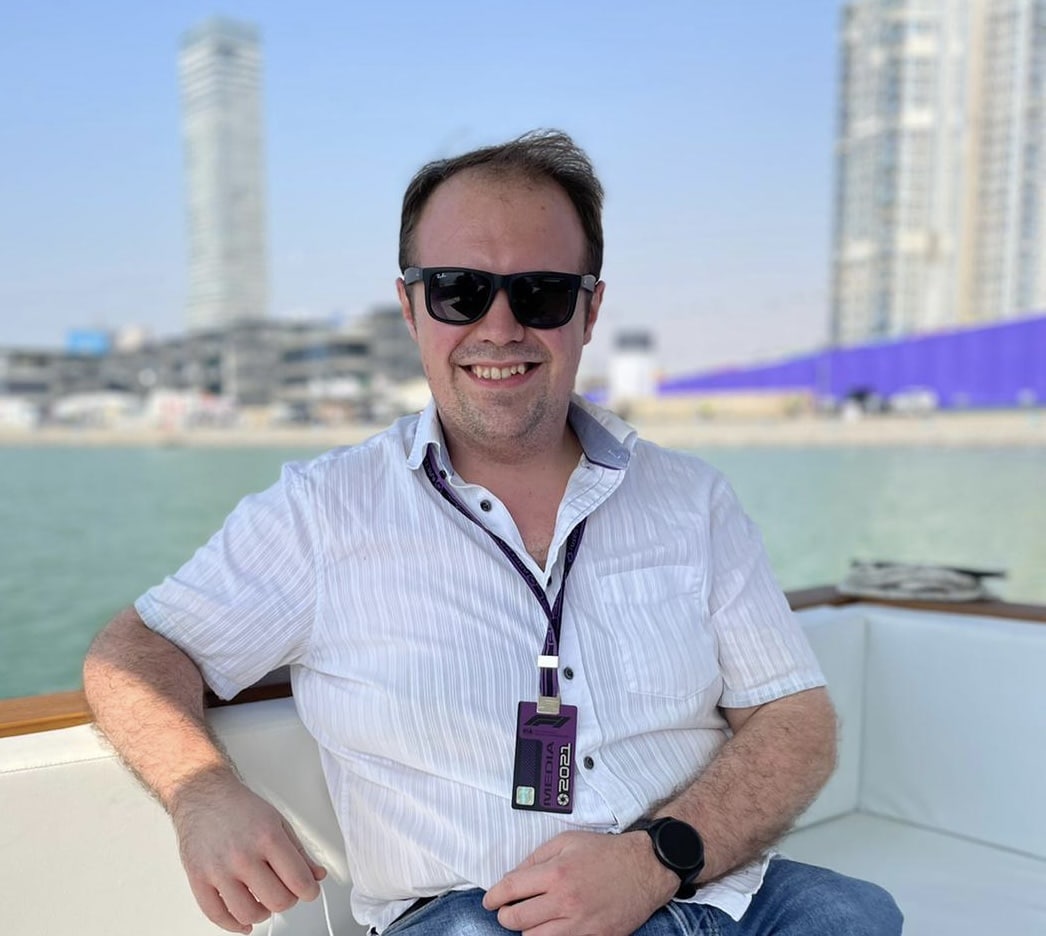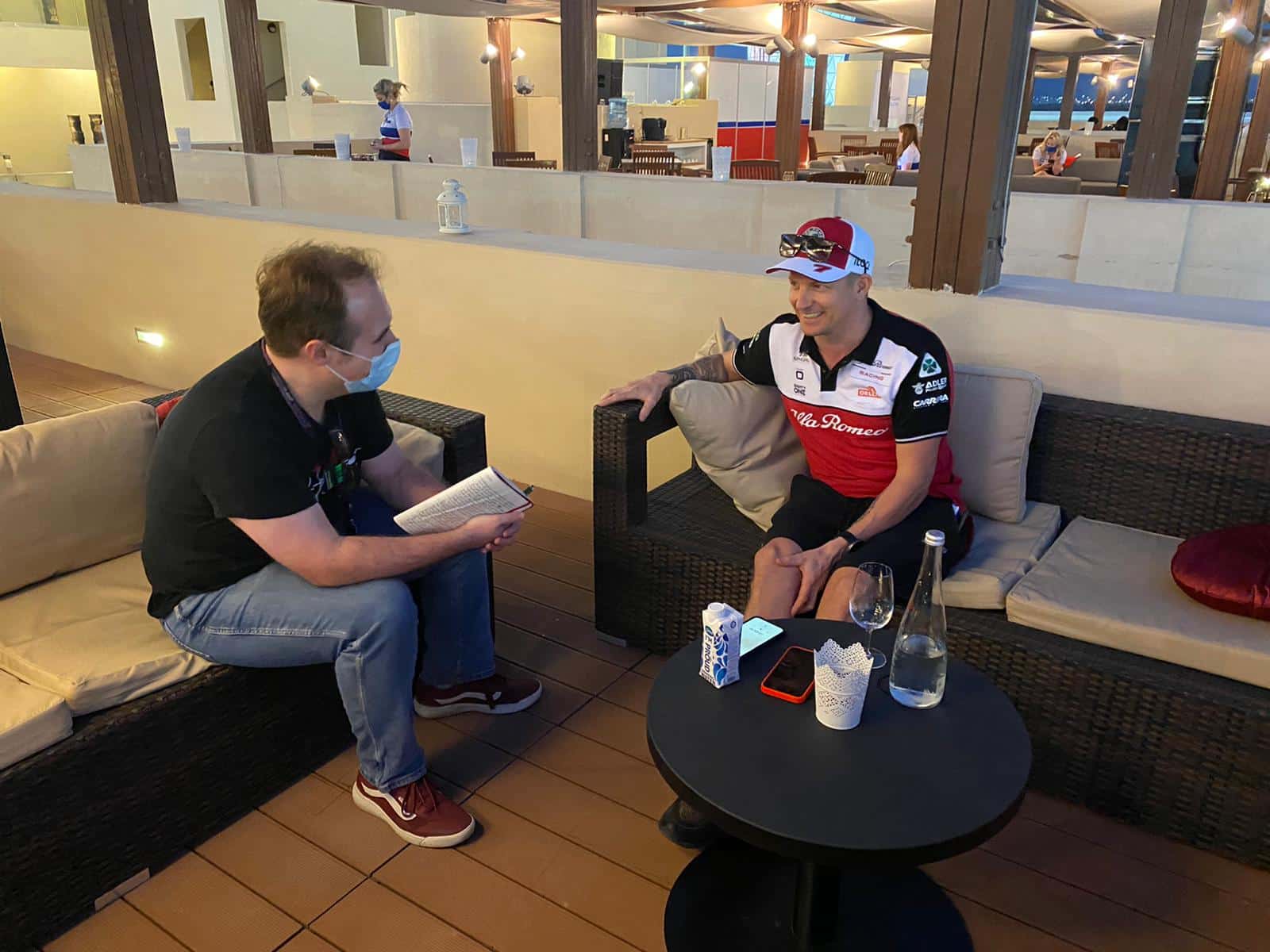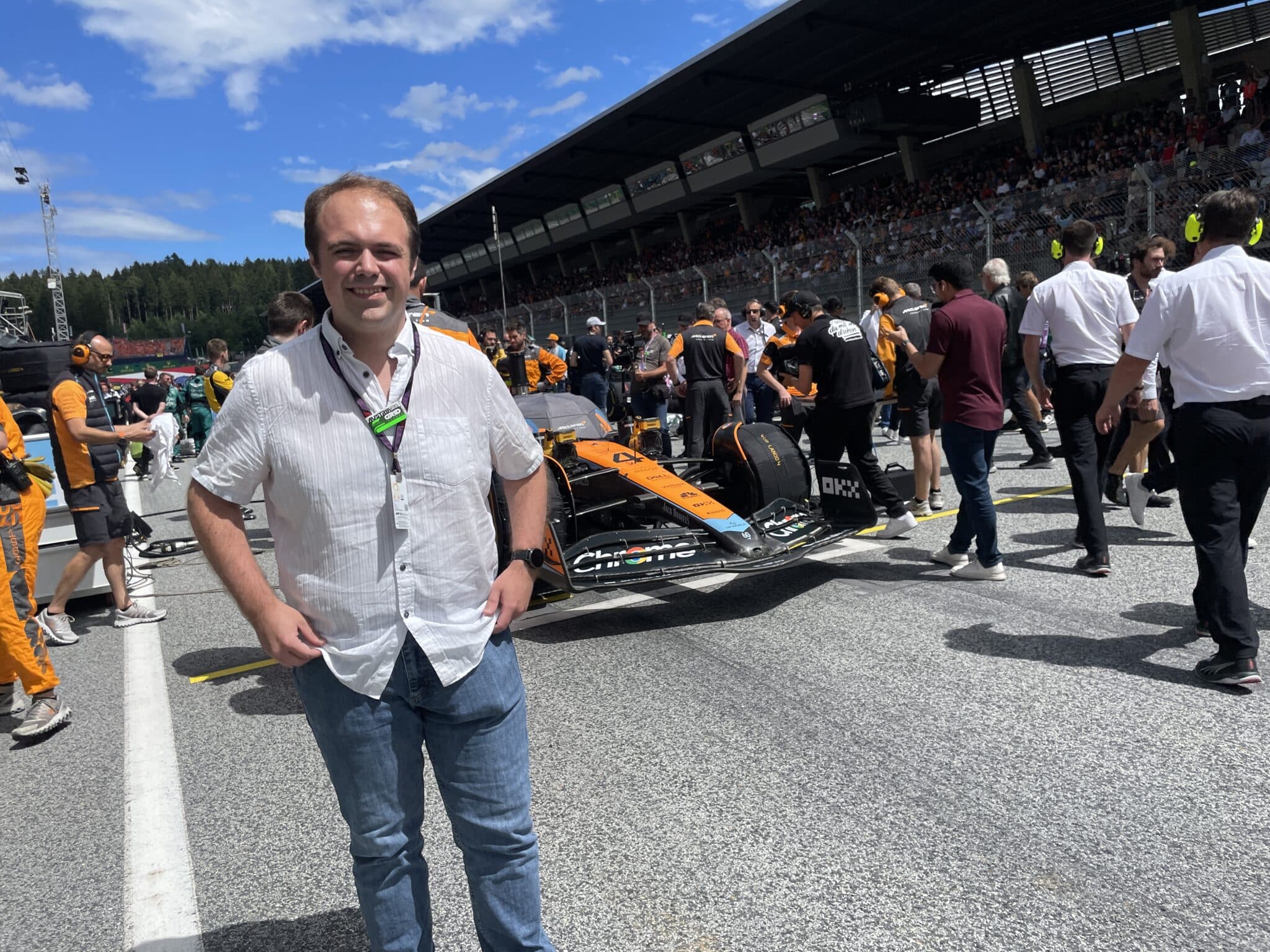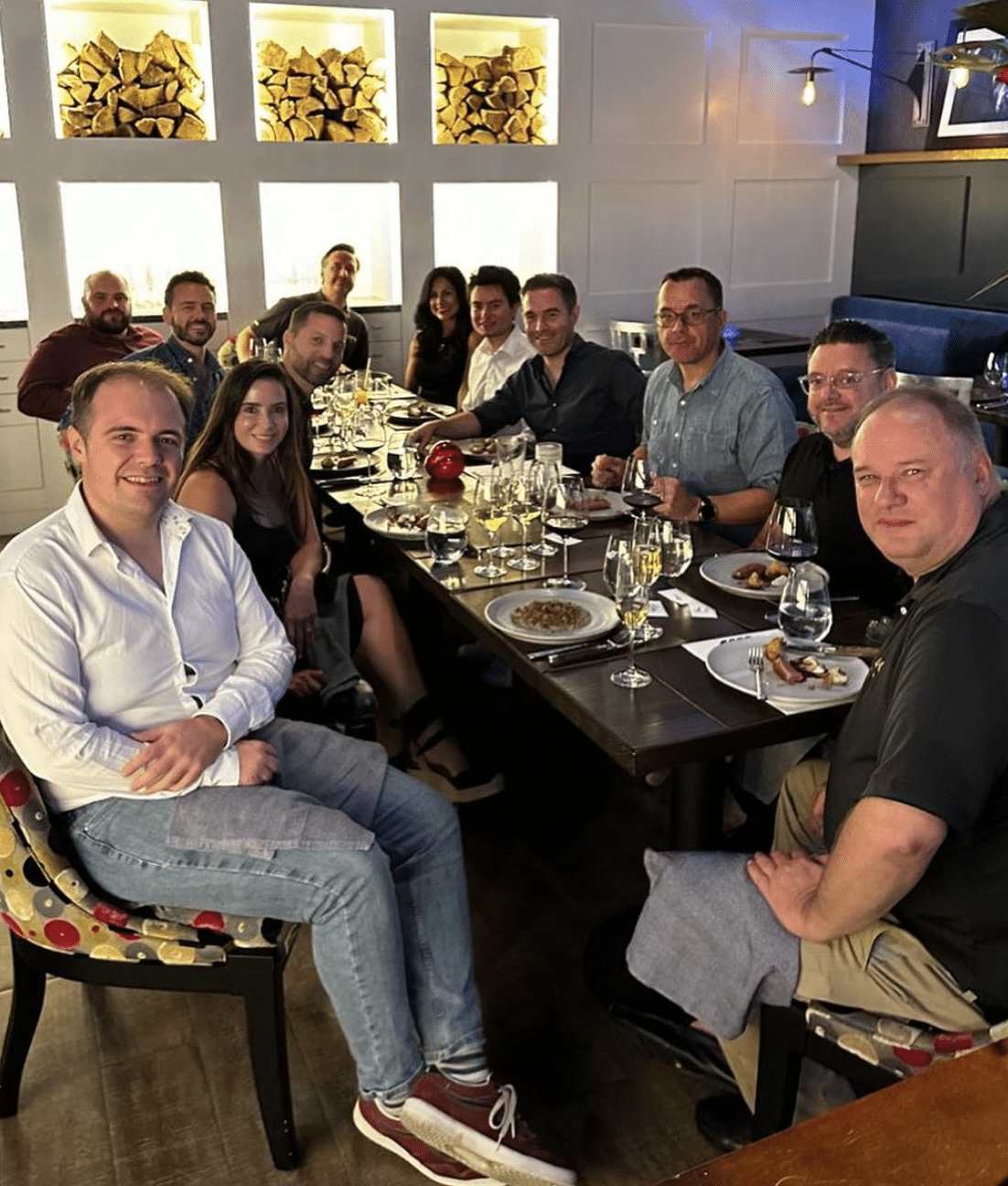

INSIGHTS
Luke Smith, Senior Writer F1, The Athletic
“You’ve got to dig deeper; you’ve got to be willing to be uncomfortable at times and look for the truth in things.”
Luke Smith is a Formula 1 journalist with over 10 years’ experience in the sport. Currently working as a Senior Writer for The Athletic, he has also contributed to The New York Times and Autosport, and is a published author.
Where it all began
I guess it really began from my interest in motorsport from quite a young age. I got into Formula 1 when I was about 11 or 12 years old. I just really had this love for racing and for F1, it was something that I shared with my mother which was really, really lovely.
And then, as I began thinking about a career, I realised I had a knack for English and writing and so the idea of being a journalist and being paid to just watch live sport and give my opinion on it seemed amazing to me.
So, around the age of 16, 17, I started to do some blogging to try and get my name out there. I spent a year just solidly writing alongside all my school studies and doing what I could to learn by trial and error about how to be journalist and how to be an F1 writer. Ultimately this led to me being picked up by NBC Sports in the U.S. when they started their TV coverage [of F1] in 2013. I got an email out of the blue saying: ‘we’ve seen your work and we like what we’ve seen’ and that they were looking for some F1 writers to support their TV coverage. That was my first paid gig in writing, which was crazy to go in at such a level while I was still very inexperienced. But I was very grateful that they took a punt on me and that started everything off really.
It’s weird to think that was now 10 years ago – it was a very, very sudden start to the journey but one that I was very fortunate to get and one for which I am incredibly grateful.
My role in 10 words or less
Asking the tough questions and writing with purpose.
Why what I do is important
My role is important, I think, because I see it as a way of assisting people’s love for racing, something that is so very important to a lot of fans all around the world. Ultimately, what we do in our business – -and in sports journalism as a whole – is not about saving lives; it’s not making a real material impact to people’s lives in the way that say, if someone were sick and you help them get better, would do.
When I was younger, I struggled to get my head around that, always asking myself ‘what am I actually doing with my job, what difference is this really making to the world?’ traveling around watching racing cars and writing about it? However, the older I got, I began to realise that it [sports journalism] is about aiding someone’s escape from their day to day stresses. They may have had a bad day at work or had a really rough week and they just want to sit down and watch F1 this weekend – that is their joy, that’s their passion, one of the greatest pleasures they get in their life. So, if you can write something or craft a piece of content – be it a video or podcast or whatever – that assists what they enjoy and helps enhance that enjoyment for them, then you are actually playing quite a big role in their passion. I think that’s a really cool thing and a very important part of the job.
But it’s also about asking the tough questions and not always following the party line or what you’re being told. You’ve got to dig deeper; you’ve got to be willing to be uncomfortable at times and look for the truth in things.
While it’s not like high-level politics – you’re not on the White House beat or anything like that – there are still so many intricate storylines [in F1]. There’s so much going on that you really have to look for those bigger stories and look at the bigger picture and be willing to get stuck into it.

My First Race
My first race was the 2013 British Grand Prix. I hadn’t been to an F1 race before then (actually I still have never been to a Formula 1 race as a fan!) because growing up there just was never the money. It’s a very expensive thing [going to an F1 race], it’s very hard to get to.
So, my first race was Silverstone 2013. I was 18 years old; it would have been between my finishing of my A-Levels and the start of University. I was incredibly young and didn’t really know what I was doing!
I remember walking into the media center and not knowing a single person. I knew of people, but I didn’t have any friends. I didn’t have anyone to sit with so I just found a seat and got on with my work over the weekend. I slowly threw myself into the media sessions and plucked up the courage to ask questions here and there.
I look back now and it’s crazy to think about that time. Now, I have so many amazing friends in Formula 1 and whenever I come into the paddock or the media center, I’ve got my mates to catch up with, people to see, people to talk to. Whereas back then I knew nobody, it was a really weird experience. Again, a lot of that period was just about trial and error really. How I went about things then was so different to what I do now.
That particular race was when there were lots of tyre failures and everyone was asking if Pirelli was up to the standard of F1. It was quite a sudden start to have this big story unfolding on my very first race weekend. That being said it was nice to be like ‘okay, I’ve ticked off race one’ and now I am close to 100 races! It feels like a very long time ago but it’s a good memory.
My Most Challenging Moment
My most challenging moment was probably when things ended with NBC because it was a job where I was reliant on the TV contract [in the U.S.] being there to justify why they needed written content. I remember through 2017, there was a lot of talk about whether NBC would get a new deal. I was assured that it was just a formality as the months went on. So next thing, I remember I was out for dinner in Japan when I got a message from a friend saying, ‘I’m really sorry’ and I didn’t know what that meant. So, I went on Twitter where I learned that NBC had lost the TV rights and nobody within the company had told me. I was pretty shell-shocked by that, thinking ‘what am I gonna do?’. I’d had this job for the best part of five years, really enjoyed it, put my heart and soul into it and now it was just going to be all over at the end of the season. I was panicking because, again, I was young, I was only 22.
I was thinking ‘is everything all over for me? Am I done with Formula 1?’
Your mind escalates things to the worst case scenario, but thankfully in the end it all worked out. By the end of that season I had quite a few job options working in different championships. In the end, I ended up staying in F1 with a website called Crash.net and the year after ended up being my first full season doing pretty much every single race. That was a really great opportunity and I was grateful that such a setback ultimately led to a really cool thing happening to me. What that moment taught me is that you have to deal with challenges and they can sometimes turn into really good moments. That doesn’t mean you should be overly positive and see everything as glass half full though. Ultimately a bad thing happening is still a bad thing but it definitely showed me that it’s not the end of the world if something bad happens. If there is a setback, you can always fight back and recover.
But that was a tough moment. I remember it very vividly. I was thousands of miles away from home in Japan when I just wanted to be with friends and family.
That was probably the toughest period for me, just that uncertainty of not knowing what I was going to do and questioning myself. Do I have the ability to land on my feet and keep working in this industry? And I’m very glad to say that it’s been six or seven years since that happened and I’m still here and I feel like I’m in a really good place.
My Proudest Moment
There are a few that come to mind, actually.
Firstly, growing up the magazine I always read was Autosport. I loved reading it, loved consuming it and so to get a job there in 2020 was the achievement of a real career goal for me. I was very, very grateful for the opportunity and I had three wonderful years working with them. That was a very proud moment.
Then leading into my current job with The Athletic as well, an outlet and a publication I really adored. I always loved the way they write about other sports also, such as football. To be able to help launch its Formula 1 coverage was something that filled me with great pride.

Another one was getting my hands on my first published book – that was also a really cool thing for me. It was only a little 16,000 word book on the history of Porsche but it was such a nice thing to be able to hold it in my hands and say, ‘this is mine, I’ve crafted this!’. That was very cool.
One final moment that really comes to mind was at the Autosport Awards last year. Sebastian Vettel was given a Lifetime Achievement award and he said he wanted someone from Autosport to present it to him. I was given the opportunity to be up on stage and give him the trophy.
That was a moment where it was hard to believe that a kid who 10 years ago was watching Seb win his [F1 Driver] Championships and then covered the latter two thirds of his F1 career on-site was now on stage giving him a big trophy. It was really weird but a very nice kind of weird!
So those are a handful of great moment which I look back on and cherish the memories.
An F1 Memory I’ll Never Forget
The race that stands out to me the most was Abu Dhabi in 2021 which I know is something we talk about with trepidation at points!
I just remember being there, down in the media pen, so I didn’t actually hear any of the radio messages, any of the back of forth with Michael Masi. But I was talking to some of the drivers such as George Russell who had already retired from the race, I think maybe 20 laps from the end – his last race for Williams. I asked him if he reckoned Lewis had got this and he was sure he had and seemed very chill about it. And suddenly everything unfolded and I remember being in the media pen with all the other journalists and the penny dropping at what was happening, We saw the Dutch TV guys going absolutely mad. They were starting to cry because they realised that Max was about to win the championship.
That whole night was a really powerful moment in terms of the twists that sport can deliver. It can be very cruel at times for some and also provide moments of incredible jubilation and celebration for others.
That race really stands out to me. I still remember vividly, where I was standing, what was happening, who we talked to, that whole evening of rushing down to Red Bull when they were going through the process and blaring out the ‘We are the Champions’ music and everything. It was a hectic few hours, a sporting storyline that you just cannot script.
What’s Next For Me
At the moment, I’m working on my first Formula 1 book which is going to be called ‘On the Grid’. It’s about life inside Formula 1. It’s looking at the culture, the traditions, the legends and really giving a pulse check of where the sport is at in the modern age. I wanted it to be something that people can hopefully read in decades to come and say ‘this was what F1 was like in the early to mid 2020’s.’
I’m really enjoying the process of writing. I’ve got one publisher HarperVia in the United States and Simon & Schuster in the UK, who have a great record publishing racing books.
It’s a very cool thing to be doing. My Porsche book was very short, it was a very different project. This is a completely different beast and not only because it’s been a lifelong dream of mine to be able to write it, but it’s also been an incredible process in terms of learning how different it is to write a book versus the sort of normal journalism jobs I do on a daily basis.
”Write as much as you can and embrace your mistakes. Be willing to take feedback and criticism and while it might sting a little bit ultimately it will make you better in the long run.
Luke SmithOn taking the important first steps in becoming a writer
It’s been a busy few months but I’m very proud of what has been written so far and I really can’t wait for the final product to come out and for people to read it. To go back to my earlier point about writing with purpose, I want it to be something that has proper depth and meaning to it, that it’s going to be something that people can take something away from and hopefully make a lasting impact.
How I’ve worked with SMG
It’s always been great working with SMG. They have always been very, very helpful and consistently go the extra mile to help us tell the stories that matter, which I think is massively important and is something that sets SMG apart from others.

Luke (L) pictured with other motorsport media and journalists at SMG’s Media Dinner in Austin, Texas. The dinner introduced media to the founders of Flatrock Motorsport Park, an SMG client, and upcoming state-of-the-art racing circuit and members club in Tennessee.
We know that when we put a request or question to SMG there’s always going to be a very quick and very honest answer back. So yeah, it’s always been entirely positive working with them.
My Advice for Aspiring Journalists
I think the first thing is just to write as much as you possibly can. To me that is the big thing. It’s important to just throw yourself into it and learn from your mistakes. Accept that mistakes are going to happen and not everything is going to be perfect.
Ultimately, it’s our failures that make us better and help us improve.
So, write as much as you can and embrace your mistakes. Be willing to take feedback and criticism and while it might sting a little bit ultimately it will make you better in the long run. Work hard and know that it’s not a job that is going to be a simple kind of life where you clock in and clock out. It’s a lot of weekends and unsocial hours and it does require a lot of sacrifice but it is worth it ultimately for this wonderful job and to be able to do this incredible profession.
So don’t sweat the big things and really just be nice to people – that is something that goes a really long way. There’s this weird perception at times being in F1 or journalism as a wider industry that you need to trample over people to make it to the top when you really don’t. It is possible to be a good person and be kind whilst still being very, very good at your job.
